Date and Time
The 2021 RSA Journals Annual Lecture Series replaced the in-person Winter Conference, normally held in London. The Board hopes to make a return to face to face events in the second half of 2022.
Please see below for more information on the lectures and recordings.
Monday 01.11.21 – Area Development and Policy
Coalitions and alliances; understanding their contribution to urban transformation
Recognising the importance of political action to achieve reform, this contribution draws on experiences with civil society initiated coalitions and alliances in urban Africa and Asia. Analysing their efforts to reduce poverty and inequality, I examine what has worked, suggest why it has worked, and identify challenges.
There is widespread acknowledgement of the need for urban reform by many disadvantaged constituencies living and working in towns and cities of the global South. Reform is also more widely recognised as required to address multiple city challenges such as responding to climate change, secure city-wide improvements in, for example, basic services such as water and sanitation and strengthening urban economies. Urban social movements that campaign for improved access to resources, protection from exploitation and abuse, and recognition have acknowledged the efficacy of working with broad-based alliances to achieve change. And the contribution of territorially-based reform coalitions as instigators of transformative change both within and beyond cities has also been more widely recognised.
Coalition building brings together those who recognise the potential of alliances to achieve common goals. In some cases, those involved create an organization to support their work; however, alliances also take the form of looser and less permanent aggregations. An analysis of inclusive urban transformation suggests that such coalitions have been important in strengthening narratives of poverty reduction, promoting more equitable policies for secure tenure and basic services, and helping to protect residents against exploitation and dispossession. Such alliances may be particularly important in highly stratified social contexts in which the legitimacy and capabilities of movements themselves are challenged.
This lecture seeks to answer the following questions:
- What have we learned from the last 20 years of coalition building
- Who are the key groups in coalitions, and why are they important?
- How do coalitions change over time in their search for greater effectiveness?
- How do coalitions work with the polity, political parties and politicians?
- And finally what do coalitions offer to the work of the African Cities Research Consortium
Speaker: Diana Mitlin (University of Manchester, UK)
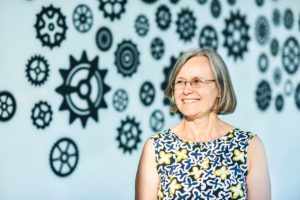 Diana Mitlin is Professor of Global Urbanism at the Global Development Institute, University of Manchester. She is also Research Associate at the International Institute for Environment and Development, and editor of IIED’s journal, Environment and Urbanization. From 2020, Diana has been CEO of the FCDO-funded African Cities Research Consortium.
Diana Mitlin is Professor of Global Urbanism at the Global Development Institute, University of Manchester. She is also Research Associate at the International Institute for Environment and Development, and editor of IIED’s journal, Environment and Urbanization. From 2020, Diana has been CEO of the FCDO-funded African Cities Research Consortium.
Diana’s work focuses on urban poverty and inequality including urban poverty reduction programmes and the contribution of collective action by low-income and otherwise disadvantaged groups. She has had a particular research focus on issues of urban basic services, tenure and housing. Diana works closely with Shack/Slum Dwellers International, a trans-national network of homeless and landless people’s federations and support NGOs; and has also worked with the Asian Coalition for Housing Rights, a network of civil society groups focussing on urban poverty and exclusion. This collaboration enables her to learn from the experiences of grassroots organizations in addressing social injustice, poverty and inequality.
Discussants:
Lalitha Kamath (Tata Institute of Social Sciences, India)
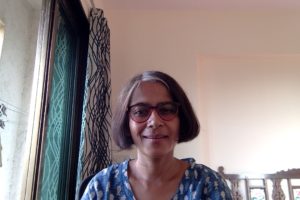
Trained as an urban planner, Lalitha is an urbanist whose research interests focus on urbanization, local governance and planning, the politics of urban institutions and infrastructure policies, and public participation. She is particularly interested in learning from and theorizing everyday urbanisms and contributing to academic and practitioner networks within India and the Global South. Lalitha is with the Centre for Urban Policy and Governance, Tata Institute of Social Sciences, Mumbai.
Susan Parnell (University of Bristol, UK/University of Cape Town, South Africa)
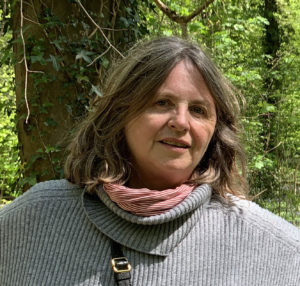 Susan Parnell is Professor in the School of Geography at the University of Bristol and Emeritus Professor at the African Centre for Cities (ACC) at the University of Cape Town. She has held previous academic positions at Wits University and the University of London (SOAS). She was a Leverhulme Visiting Professor at UCL in 2011/2, Emeka Anyaoku Visiting Chair University College London in 2014/15 and Visiting Professor at LSE Cities in 2017/18. She has been actively involved in local, national and global urban policy debates around the 2030 Sustainable Development Goals and is an advocate for better science policy engagement on cities. She is the author of numerous peer-reviewed publications that document how cities, past and present, respond to policy change. Her most recent books include the co-authored Building a Capable State: Post Apartheid Service Delivery (Zed, 2017) and the co-edited The Urban Planet (Cambridge, 2018).
Susan Parnell is Professor in the School of Geography at the University of Bristol and Emeritus Professor at the African Centre for Cities (ACC) at the University of Cape Town. She has held previous academic positions at Wits University and the University of London (SOAS). She was a Leverhulme Visiting Professor at UCL in 2011/2, Emeka Anyaoku Visiting Chair University College London in 2014/15 and Visiting Professor at LSE Cities in 2017/18. She has been actively involved in local, national and global urban policy debates around the 2030 Sustainable Development Goals and is an advocate for better science policy engagement on cities. She is the author of numerous peer-reviewed publications that document how cities, past and present, respond to policy change. Her most recent books include the co-authored Building a Capable State: Post Apartheid Service Delivery (Zed, 2017) and the co-edited The Urban Planet (Cambridge, 2018).
Chair: Ivan Turok (South African NRF Research Chair in City-Region Economies, South Africa)
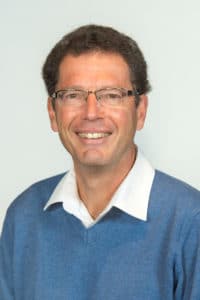 Prof Ivan Turok holds the NRF Research Chair in City-Region Economies in the Department of Economics and Finance and the Centre for Development Support at the UFS. He has authored more than 150 peer-reviewed publications and 11 books/monographs. He is the former Editor-in-Chief of Regional Studies, Executive Director at the Human Sciences Research Council and Chairman of the Durban City Planning Commission. He was formerly Professor of Urban Economic Development at the University of Glasgow. He is an occasional adviser to the United Nations, OECD, African Development Bank, UNECA, and several national governments. His recent books include Transitions in Regional Economic Development (2018, Routledge), Value Chains in Sub-Saharan Africa (2019, Springer), and Restoring the Core: Central City Decline and Transformation in the South (2020, Elsevier). He has a PhD in Economics from the University of Reading.
Prof Ivan Turok holds the NRF Research Chair in City-Region Economies in the Department of Economics and Finance and the Centre for Development Support at the UFS. He has authored more than 150 peer-reviewed publications and 11 books/monographs. He is the former Editor-in-Chief of Regional Studies, Executive Director at the Human Sciences Research Council and Chairman of the Durban City Planning Commission. He was formerly Professor of Urban Economic Development at the University of Glasgow. He is an occasional adviser to the United Nations, OECD, African Development Bank, UNECA, and several national governments. His recent books include Transitions in Regional Economic Development (2018, Routledge), Value Chains in Sub-Saharan Africa (2019, Springer), and Restoring the Core: Central City Decline and Transformation in the South (2020, Elsevier). He has a PhD in Economics from the University of Reading.
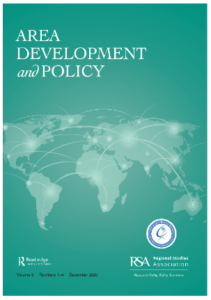 Area Development and Policy (ADP) engages with the transformation of the modern world as a result of the development of the global South/greater BRICS.
Area Development and Policy (ADP) engages with the transformation of the modern world as a result of the development of the global South/greater BRICS.
Tuesday 02.11.21 – Spatial Economic Analysis
There exists a number of disaster analysis streams that make use of input-output analysis. In this work, we are particularly interested in using input-output frameworks for investigating changes in consumption possibilities as a result of disaster-induced production shortfalls. We propose an improved disaster analysis approach, characterised by enabling spatial substitution, and by the ability to control for which parts of a multi-regional economy need to be shielded from the disaster. More specifically, first, we want to allow industries to substitute alternative inputs for reduced inputs. For example, industries may substitute unavailable inputs with imports of the identical product, or may use alternative technologies or materials. Second, we want to be able to specify that a disaster shall affect some intermediate or final demanders less than others, and some not at all. For example, partial power blackouts should affect schools only temporarily, supermarkets and cool-store facilities even less, and hospitals not at all. We apply our new approach to a case study: The consequences of Venezuela’s oil revenue plunge.
Speaker: Manfred Lenzen, (The University of Sydney, Australia)
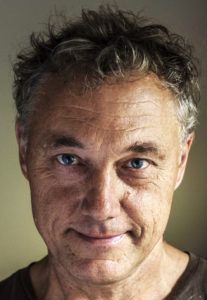
Manfred Lenzen is Professor of Sustainability Research at Integrated Sustainability Analysis (ISA) in the School of Physics at the University of Sydney. Manfred has a PhD in Nuclear Physics and 15 years of experience in renewable energy technologies. He has undertaken extensive experimental research on passive solar architecture. He is an international leader in economic Input-Output Analysis and Life-Cycle Assessment, is Associate Editor for the Journal of Industrial Ecology, and is the Editor-in-Chief of the journal Economic Systems Research. He has contributed major methodological advances as well as numerous applications, in particular on embodied energy and greenhouse gas emissions.
Speaker: Mengyu Li (The University of Sydney, Australia)
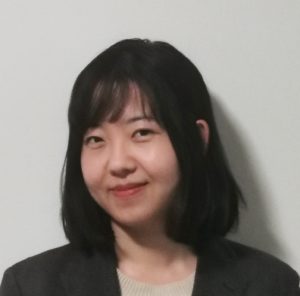
Dr. Mengyu Li received her Ph.D. at Integrated Sustainability Analysis (ISA) in the School of Physics, the University of Sydney in 2020. She now works as a Postdoctoral Research Fellow at ISA. Her research areas include: 1) using input-output-based disaster models to assess economic, environmental and social impacts of disasters; 2) lower carbon energy system modelling and sector coupling strategies;
Chair: Paul Elhorst (University of Groningen, The Netherlands)

Paul Elhorst is Professor of Spatial Econometrics at the University of Groningen, the Netherlands, and author of the book “Spatial econometrics: from cross-sectional data to spatial panels” that appeared in 2014. Since September 2015 he is Editor-in-Chief of the RSA journal Spatial Economic Analysis. His research interests are spatial econometrics, both theoretical and empirical, software, regional labour market analysis, economic growth, research productivity, military spending, contagion, FDI, fiscal policy interaction and transport economics. He has written more than 100 papers in refereed journals, both in English and Dutch, and supervised 7 PhD theses.
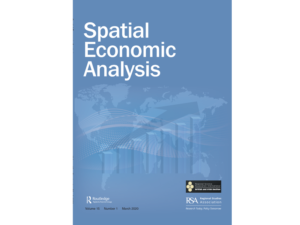
Spatial Economic Anallysis publishes research in spatial and geographic economics covering spatial data analysis and economic phenomena at city, regional and global levels.
Thursday 04.11.21 – Regional Studies
As global populations become more urbanized, wealth distribution more inequitable, and climate change impacts more severe, the pressure on our interconnected natural and synthetic infrastructural systems to maintain basic quality of life standards grows more and more intense. Infrastructural optimism is the concept that a more socially equitable and ecologically intact future is paramount to the universal right to the city and can be more readily produced through collaborative design and planning utilizing principles of infrastructural urbanism and strategies of infrastructural opportunism. If infrastructural optimism is the luxury of reinvention in the already fertile soil of progressive political leadership, supportive agencies, engaged and willing residents, and abundant financial backing, infrastructural opportunism – leveraging large infrastructure investment for greater social and environmental gains – is the vehicle through which more challenged contexts have the chance to equalize that footing.
Based on research primarily centered in US regions and megaregions, but applicable more broadly, this presentation shares two infrastructural opportunism case studies: the interstate 11 (I11) Supercorridor in the Southwest megaregion of the US and the Northside-Southside MetroLink light rail line in the midwest US city of St. Louis, Missouri. Offering sharply contrasting geographic and demographic conditions, these two projects are utilized as sites for interdisciplinary urban design students and research partners to collaborate with real-world project stakeholders to help shift the paradigm away from predictable and resource-intensive solutions towards next generation infrastructure.
Speaker: Linda Samuels (Washington University in St. Louis, USA)
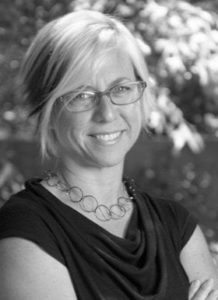
Linda C. Samuels, RA, PhD, is an associate professor of urban design at the Sam Fox School of Design & Visual Arts at Washington University in St. Louis, where she teaches inter-disciplinary studios and seminars on Infrastructural Urbanism, urban history and theory, and alternative sustainability metrics. Recent studio partners include Virgin Hyperloop One (LA/LV), Food Forward (LA), Lorcan O’Herlihy Architects (LA/Detroit), Bistate Research Institute (St. Louis), and Dutchtown South Community Corporation (St. Louis).
Samuels was co-principal investigator on a grant from The Divided City initiative, funded by the Mellon Foundation, entitled Mobility For All By All, which aims to increase the social and environmental benefits of the multibillion-dollar proposed MetroLink expansion for residents living along the alignment. She was a team member on the award-winning (AIA NY, Architzer, UN) “+STL: Growing an Urban Mosaic” finalist proposal for the Chouteau Greenway Competition led by dhd, TLS Landscape Architecture & OBJECT TERRITORIES.
Previously, Dr. Samuels was the inaugural director of the Sustainable City Project (SCP), a multidisciplinary research, teaching, and outreach initiative of the University of Arizona where she worked with public and private partners on micro- to macro-scaled sustainability efforts in southern Arizona and the larger megaregion. Projects ranged from the I-11 Supercorridor spanning two states, three universities and 500 miles to the SLUG: Sustainability Laboratory and Urban Garden design/build with City High School, transforming their 12’ x 125’ alley. Samuels and co-teacher Christopher Trumble won an ACSA Collaborative Practice Award for the SLUG in 2020.
Samuels earned her Doctorate in Urban Planning from the University of California, Los Angeles, and her Master of Architecture from Princeton University. While at UCLA, she was a senior research associate at cityLAB, an urban think tank in UCLA’s Department of Architecture and Urban Design. Samuels organized the influential WPA 2.0 design competition, symposium, and exhibition with Dana Cuff, Roger Sherman, and Tim Higgins.
Her publications include “Top/Up Urbanism” in Amplified Urbanism and “Resistance at the Trench: Why Efforts to Reinvent the 101 Freeway in Downtown Los Angeles Continue to Fail” in the Journal of Planning History (both 2017); “Stitches and Insertions” in Cuff and Sherman’s Fast-Forward Urbanism: Rethinking Architecture’s Engagement with the City (2011); and “Infrastructural Optimism” (2009) and “Working Public Architecture” (2010), both published in Places journal. Her 2019 essay, “A Case for Infrastructural Opportunism” was published in TAD: Technology I Architecture + Design. Samuels’ most recent book, Infrastructural Optimism, is available now from Routledge.
Samuels’ work has been widely supported, including grants from the John Randolph and Dora Haynes Foundation, the Getty Research Institute, UCLA, the Graham Foundation, the Association of Collegiate Schools of Architecture, the Mellon Foundation Divided City Initiative, and the LEF Foundation.
Chair: Jennifer Clark (The Ohio State University, USA)
 Dr. Clark is a Fellow of the American Association of Geographers (AAG) and a Fellow of the Regional Studies Association. She is the Deputy Editor-in-Chief of the journal Regional Studies and recently served as the Chair of the Economic Geography Specialty Group of the AAG (2017-2019). Dr. Clark earned her Ph.D. from Cornell University, a Master’s degree from the Humphrey School of Public Affairs at the University of Minnesota and a B.A. from Wesleyan University.
Dr. Clark is a Fellow of the American Association of Geographers (AAG) and a Fellow of the Regional Studies Association. She is the Deputy Editor-in-Chief of the journal Regional Studies and recently served as the Chair of the Economic Geography Specialty Group of the AAG (2017-2019). Dr. Clark earned her Ph.D. from Cornell University, a Master’s degree from the Humphrey School of Public Affairs at the University of Minnesota and a B.A. from Wesleyan University.
Dr. Clark’s most recent book is entitled Uneven Innovation: The Work of Smart Cities (2020), published by Columbia University Press. Her other books include Working Regions: Reconnecting Innovation and Production in the Knowledge Economy (2013), Remaking Regional Economies: Power, Labor, and Firm Strategies in the Knowledge Economy (2007, with Susan Christopherson, winner of the Best Book Award from the Regional Studies Association) and the 3rd edition of Basic Methods of Policy Analysis and Planning (2012, w/ Carl Patton and David Sawicki, a widely adopted text in public policy and urban and regional planning courses). She is also co-editor of Handbook of Manufacturing Industries in the World Economy (2015) and Transitions in Regional Economic Development (2018). In addition, she has written numerous articles and book chapters.
Dr. Clark researches and teaches courses on urban and regional economic development theory, analysis and practice as well as research design and methods. She has provided expert testimony before the U.S. Congress and policy consulting to the Organization for Economic Cooperation and Development and the Canadian, U.K., and U.S. governments. Before joining the Knowlton School, Dr. Clark taught at Cornell University and the Georgia Institute of Technology where she was also the Director of the Center for Urban Innovation.
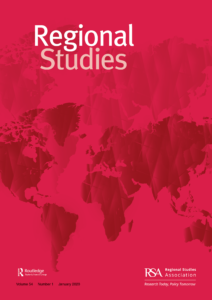 Regional Studies is a leading international journal in theoretical development, empirical analysis and policy debate in the multi- and interdisciplinary field of regional studies.
Regional Studies is a leading international journal in theoretical development, empirical analysis and policy debate in the multi- and interdisciplinary field of regional studies.
Monday 08.11.21 – Regional Studies, Regional Science
Transportation networks underpin urban mobility. In turn, spatial network analysis has emerged as an important frontier in urban informatics as more data are collected about transportation networks’ form and utilization. However, the tools to model and analyze these networks are too often inaccessible, atheoretical, or otherwise limiting. This talk discusses some of the foundations and recent trends in this field, highlighting the growing connections between urban data science, network science, and transportation planning. It argues for open-source software and reusable computational data science as keys to both link and advance these disciplines for better science and practice.
Speaker: Geoff Boeing (University of Southern California, USA)
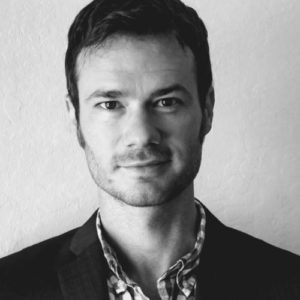
Dr. Boeing received his Ph.D. in City and Regional Planning from the University of California, Berkeley. Prior to joining the Price School, he was an Assistant Professor of Urban Informatics and Planning at Northeastern University’s School of Public Policy and Urban Affairs.
His research revolves around city planning, urban form, data science, and urban informatics. Recent projects have focused on 1) the nature and character of urban street networks around the world, and 2) how spatial technologies and their data shape housing markets and our understanding of affordability. He is published in journals such as Environment and Planning A: Economy and Space; Environment and Planning B: Urban Analytics and City Science; Computers, Environment and Urban Systems; the Journal of Planning Education and Research; Applied Network Science; and Urban Design International.
He has recently presented this research in plenary addresses at the 2019 AAG annual meeting, 2018 Architect of the Future conference and an invited presentation at the 2018 Venice Biennale. His research was shortlisted by the 2018 Information Is Beautiful Awards and the 2019 NetSci Visualization Awards and has been covered by Forbes, Slate, The Washington Post, The San Francisco Chronicle, The Boston Globe, and various other media outlets. He has served as a consultant for several planning, policymaking, and public health organizations.
Chair: Franziska Sielker (University of Cambridge, UK)
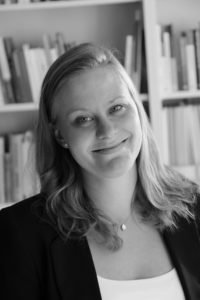
Dr. Franziska Sielker is a University Lecturer for Planning and Housing at the Department of Land Economy, University of Cambridge and Associate Member of the Cambridge Centre for Housing and Planning Research. She joined Cambridge University first as a British Academy Newton International Postdoc Fellow before becoming Senior Research Associate. In 2018-2019 she was Interim Professor for “International Planning Studies” at TU Dortmund University, where she also graduated in 2012. She took her Doctorate at the University of Erlangen-Nuremberg, Institute of Geography. Her research focusses on European spatial governance, international transport corridors, in particular the Belt and Road Initiative, digitalisation and housing. Theoretically her work is informed by planning theory, political geography and border studies.
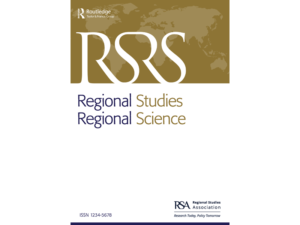 Regional Studies, Regional Science publishes Open Access research on regional issues in geography, governance and policy as well as urbanization and economic development.
Regional Studies, Regional Science publishes Open Access research on regional issues in geography, governance and policy as well as urbanization and economic development.
Friday 12.11.21 – Territory, Politics, Governance
In his talk, Julian will outline the concept of just sustainabilities as a response to the ‘equity deficit’ of much sustainability thinking and practice. He will explore his contention that who can belong in our cities will ultimately determine what our cities can become. He will illustrate his ideas with examples from urban planning and design, food justice and the ‘Minneapolis Paradox’.
Speaker: Julian Agyeman (Tufts University, USA)

Julian Agyeman Ph.D. FRSA FRGS is a Professor of Urban and Environmental Policy and Planning, and the Fletcher Professor of Rhetoric and Debate at Tufts University in Greater Boston, USA. He is the originator of the concept of ‘just sustainabilities,’ which explores the intersecting goals of social justice and environmental sustainability, defined as ‘the need to ensure a better quality of life for all, now and into the future, in a just and equitable manner, whilst living within the limits of supporting ecosystems.’
Born and trained in the UK, he has a B.Sc. in Geography and Botany (University of Durham, 1980), an MA in Conservation Policy (Middlesex University, 1987), and a Ph.D. in Urban Studies (University of London, 1996). He identifies himself as a critical urban planning and environmental social science scholar.
His combined science and social science background, together with extensive experience in local government, consulting, working for, and board-level advising of NGOs and community-based organizations in the UK and US, helps frame his perspectives, research and writing. This enables him to thrive at the borders and intersections of a wide range of disciplines, knowledges and methodologies which he uses in creative and original ways. Click here to read more.
Chair: Klaus Dodds (Royal Holloway University of London, UK)
 Professor Klaus Dodds is the Director of Research for the School of Life Sciences and Environment and Director of Living Sustainably at Royal Holloway. In October 2012, he was elected Academician (now Fellow) of the Academy of Social Sciences (FAcSS). He researches in the areas of environmental and health geopolitics, ice humanities and the international governance of the Antarctic and the Arctic. In 2020-1 he was visiting Fellow of the Institute of Advanced Studies Loughborough University and in 2021-22 will be visiting professor at the College of Europe, Warsaw teaching disinformation, misinformation and mal-information in geopolitics, health, and border politics. His latest book is Border Wars (Ebury and Diversion Publishers 2021).
Professor Klaus Dodds is the Director of Research for the School of Life Sciences and Environment and Director of Living Sustainably at Royal Holloway. In October 2012, he was elected Academician (now Fellow) of the Academy of Social Sciences (FAcSS). He researches in the areas of environmental and health geopolitics, ice humanities and the international governance of the Antarctic and the Arctic. In 2020-1 he was visiting Fellow of the Institute of Advanced Studies Loughborough University and in 2021-22 will be visiting professor at the College of Europe, Warsaw teaching disinformation, misinformation and mal-information in geopolitics, health, and border politics. His latest book is Border Wars (Ebury and Diversion Publishers 2021).
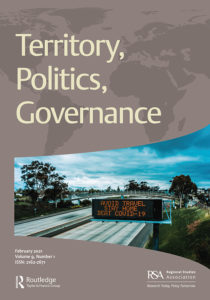 Territory, Politics, Governance (TPG) is committed to the development of theory and research in territorial politics and the governance of space.
Territory, Politics, Governance (TPG) is committed to the development of theory and research in territorial politics and the governance of space.